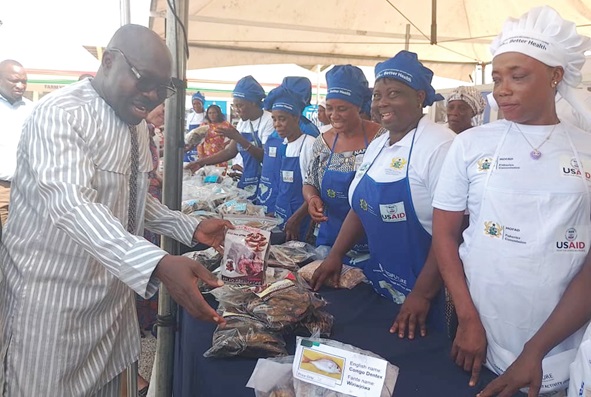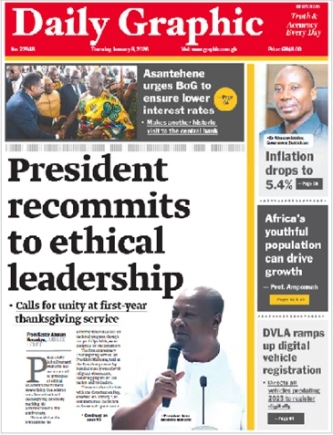
Fish festival opens in Accra
The fourth edition of the Fish Festival has been held in Accra with operators in Ghana's fisheries industry displaying hundreds of fish products and inputs.
There were also deliberations on various topics focusing on transforming and growing the aquaculture sub-sector to increase domestic fish production, reduce imports, and create job opportunities along the fisheries value chain.
The two –day event was themed: “developing Ghana’s blue economy for sustainable fisheries management and national development”.
It aimed at highlighting the pivotal role the fisheries sector played in the economic development of the country.
The free-to-attend festival at the Black Star Square in the Greater Accra Region apart from serving as an exhibition platform for fishing and aquaculture inputs, fish products, also offered patrons the opportunity to buy fresh and processed fish from a fish market.
Significance
Speaking at the forum, the Deputy Minister of Fisheries and Aquaculture Development, Moses Anim, said the festival was part of activities to mark the 2023 international world fish day celebration.
He said it was to serve as a platform to educate the public on aquaculture and marine fisheries, foster learning and networking, and promote business partnerships among value chain actors.
Additionally, he said it was also to recognise the vital contributions of fishers and aquaculture operators, and deliberate on the opportunities and challenges in the development of Ghana’s blue economy.
Challenges not over
The President of the Ghana National First Traders and Processors Association, Regina Solomon, said although some gains had been made in the fisheries sector such as reduction of child labour and addressing post harvest loses through interventions that make it possible for fish processors to add value to their products, there were still a number of challenges that needed to be addressed.
“We have challenges. All is not well.
There are no fish.
Our fishermen do not catch fish when they go fishing.
Fishers are hungry, we have seen fishers losing their lives along all the four fishing regions in Ghana.
This has been the worst period in the history of fishing in this country,” she said.
She was also worried about illegal fishing practices and urged all fishers to shun such activities and also indicated that members of the association would not patronise fish sourced through illegal means.
Some of the illegal activities include: fishing with light, use of chemicals, use of unapproved fishing nets, not submitting of fish data to the fisheries commission, throwing bycatch into the sea, transhipment among others.
Law enforcement
Madam Solomon called for strict enforcement of the fisheries laws to save the country's fishing industry from collapse.
“Some fishing communities such as Prampram, Teshie and Nungua have indicated that they would not allow illegal fishing in their jurisdictions but when you go to some fishing communities such as Apam, illegal fishing is the order of the day.
“There are fishing communities where fishers used to do illegal fishing under the cover of darkness.
Now they do it in broad daylight.
They do not hide their generators anymore.
How can we all practice for some to do illegal activity and enrich themselves while others suffer.”
She also urged the Ministry and the Fisheries Commission to come out with the number of women serving on premix committees in the various fishing committees.
“We have heard there are 12,000 premix committee members.
We want to know how many women are involved,” she said.
The Chairman of the Ghana National Canoe Fishermen Council, Nana Jojo Solomon, urged the government to introduce police visibility in the communities where illegal fishing was ongoing.
He explained that the police visibility would help combat illegal unreported and unregulated fishing.

 Click the link to read your copy.
Click the link to read your copy.